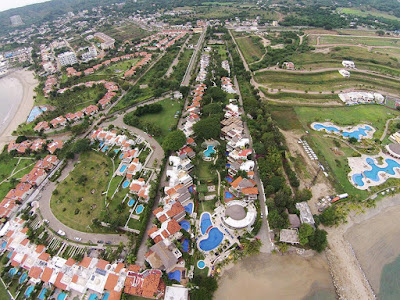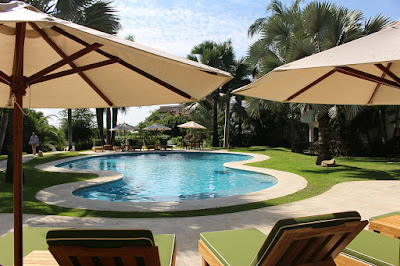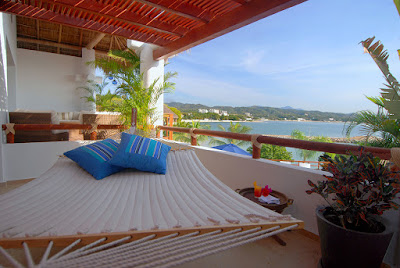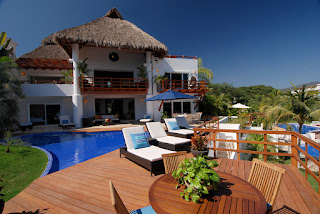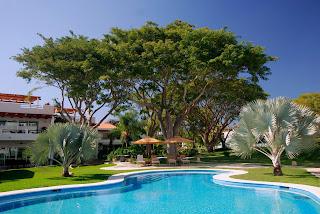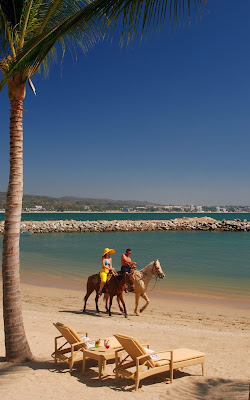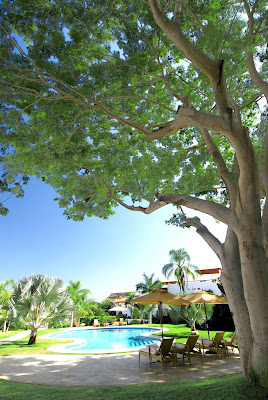Timeshare can come in many different forms, shapes and sizes yet can be universally described as holiday accommodation shared by multiple owners.
The concept of timesharing is thought to have came about in early 20th century Europe when families would group together to purchase holiday a home in which they each had a share. Those families would then be given an equal amount of time to holiday in the property each year with each contributing toward the cost of upkeep. Typically, there may have been four families with each having 3 months to enjoy the property every year.
Clearly, before the age of cheap air-fairs families would have had very different holiday needs and were much more likely to visit the same destination each year. Since some families would have spent months away from their full-time residence at anyone time, there would have been a compelling case for some that owning a share in a holiday home was far better value than renting hotel accommodation and gave a better standard of accommodation than could generally be achieved with what little short-term rentals were available.
Sometime in the 1960’s the idea was then developed into what could now be considered to the traditional timeshare model where families purchased a “week”. Here the developer of a resort will have split all or just some of the apartments or villas at a resort into weeklong periods that could be purchased giving the owner the right to occupy that apartment every year on a specific week number.
Depending on the resort, timeshare owners may have a purchased leasehold, freehold or timeshare “in perpetuity”. Sometimes owners would actually be purchasing the land and bricks and mortar for just one week and sometimes they were buying simply the right to occupy an apartment and becoming members of a “Club”.
The style of properties began to include apartments, villas and townhouse with sizes typically ranging from studio apartments to 4 bedroom units.
After the initial up-front purchase price, owners would then pay towards the upkeep of their resorts facilities and services by way of an annual maintenance fee.
As the industry grew, the ability for timeshare owners to “Exchange” from his or her own resort to that of another timeshare owner was introduced. The services of the two main exchange organisations, RCI (Resort Condominiums International) and II (Interval International) meant timeshare became real alternative to package holidays which were often poor value for consumers.
This was the catalyst for a period of sustained, rapid growth since timeshare ownership coupled with exchange membership was a very compelling proposition for families taking regular holidays.
Types of Timeshare
There are now many different variations of timeshare although most can be categorised into one of following types;
Fixed Week – This being the most traditional form of timeshare, here the owner has a particular week in which they can occupy a specific apartment at their resort each year. For example, week 14 generally commences at the beginning of April.
Floating Week – Here the owner has the right to occupy a certain sized unit (either at just one resort at numerous resorts) for one week every year. Floating weeks give the owner more flexibility as to what time of year they can holiday but this is subject to availability.
Stop Vallarta Gardens scams now, Find out how to prevent timeshare scams by Vallarta Gardens.
miércoles, 8 de julio de 2015
Vallarta Gardens Resort
Behold the beauty of Vallarta Gardens, Vallarta Gardens is a resort with a strict policy regarding scams.
lunes, 6 de julio de 2015
The benefits of owning a timeshare
The purchase of a timeshare is a way to own a piece of a vacation property that you can use, generally, once a year.
If you’re considering buying a timeshare, so you’ll have a place to vacation regularly, you’ll want to understand the different types and the pros and cons. There are two types of timeshare ownership: fee simple, which is the deeded ownership of real estate, and certificate, which is a lease that allows use of the property under terms the lease specifies. Timeshare buyers may purchase fixed or floating weeks, or purchase points that can be redeemed for a choice of weeks or locations.
Only Pay for What You Use
Unlike a vacation home, which you pay for throughout the year but only use for a few weeks, you only pay for a timeshare during the time that you are using it. Because you are sharing the cost with others, there is much less financial strain throughout the year.
You can also rent out your timeshare if you do not plan on using it that year and save the money for other things. Having control of your timeshare allows you to decide who rents from you and it also allows family members or friends to take advantage of your timeshare.
Guaranteed Vacations
A timeshare is a guaranteed vacation. If you are bad at organizing your vacation days, then a timeshare is a vacation destination that is guaranteed to be there one week a year. This can make it easier for you to save for and make plans for your annual vacation. Your contract usually requires that the property be occupied by you once a year. If you enjoy visiting the same place every year, this is a good way of securing your vacation.
If you’re considering buying a timeshare, so you’ll have a place to vacation regularly, you’ll want to understand the different types and the pros and cons. There are two types of timeshare ownership: fee simple, which is the deeded ownership of real estate, and certificate, which is a lease that allows use of the property under terms the lease specifies. Timeshare buyers may purchase fixed or floating weeks, or purchase points that can be redeemed for a choice of weeks or locations.
Why buy a timeshare
Timeshare Accommodations
When you choose your timeshare, you pick the amount of space for your own situation, from a studio apartment to a three- or even four-bedroom unit. Unlike hotel rooms, many timeshares are spacious and offer a fully-equipped kitchen, a dining room and a living room. Amenities including hot tubs, Jacuzzis, a fireplace and an entertainment center may also be available. Owners enjoy a washer and dryer and home cleaning services.
Onsite and Nearby Amenities
If you like predictability, you have a guaranteed vacation destination.
Typically, timeshares offer on-site amenities such as swimming pools, tennis courts and hot tubs. Many have fitness centers, and even spas offering treatments for health and beauty. Off-site activities are often located conveniently nearby, including family activities such as boating, skiing, golfing and water sports. Special children’s activities may also be available. When choosing timeshare destinations, whether using your own timeshare or “swapping” for another, you will undoubtedly be close to the attractions of your choice. Some timeshares even offer cruises.Value, Flexibility and Convenience
Unlike a vacation home which may be vacant part of the year, you only pay for what you use. Thus, the use of a very expensive property could be more affordable; for one thing you don’t need to worry about year-round maintenance. Many people find that they save money by owning a timeshare. One advantage is that you can lock in future vacation accommodations at today’s prices, and you have the option to rent your timeshare space or share it with family and friends. Timeshare owners have the flexibility of choosing where and when they want to travel, the amount of vacation time they would like to spend, and the size of the unit. Typically, timeshare owners belong to an exchange, and can “swap” their units yearly for another destination worldwide. Timeshare owners may be able to vacation at another time of the year and group allotted weeks together for future vacations. For convenience, many timeshare owners are required to pay a yearly maintenance fee to the resort, eliminating monthly maintenance fees, utility charges, tax, insurance and cleaning services. Timeshares are a form of ownership that can be willed to family members. You may be able to rent out your block of time if you can’t use it, although some timeshare contracts may not permit this and website exchange services may charge you to play matchmaker.Exchange Programs
You may be able to trade times and locations with other owners, allowing you to travel to new places, allowing each one to experience a different place in the world every couple of years. Some companies have locations all over the world including South America, the Caribbean, Europe and Australia, as well as dozens of locations around the United States.Only Pay for What You Use
Unlike a vacation home, which you pay for throughout the year but only use for a few weeks, you only pay for a timeshare during the time that you are using it. Because you are sharing the cost with others, there is much less financial strain throughout the year.
You can also rent out your timeshare if you do not plan on using it that year and save the money for other things. Having control of your timeshare allows you to decide who rents from you and it also allows family members or friends to take advantage of your timeshare.
Maintenance Free
A timeshare takes care of itself. Annual maintenance fees insure your timeshare and resort upkeep and any repairs that it may need. Your fees also pay for on-sight management and insurance so there is always someone looking after the property, which cannot be said for vacation homes or condos that may sit vacant for months at a time.Guaranteed Vacations
A timeshare is a guaranteed vacation. If you are bad at organizing your vacation days, then a timeshare is a vacation destination that is guaranteed to be there one week a year. This can make it easier for you to save for and make plans for your annual vacation. Your contract usually requires that the property be occupied by you once a year. If you enjoy visiting the same place every year, this is a good way of securing your vacation.
Cheaper, Roomier Alternative to Hotels
Hotels are great for some, but anyone who has traveled with a large group of people or children can tell you that the accommodations are not ideal. Staying in a nice hotel is expensive and adding extra rooms compounds the cost so that a week in a hotel for a family of four can quickly climb into the thousands of dollars. Timeshares are most often modeled after two bedroom, two bathroom condos and include a living room, laundry and fully stocked kitchen which can cut out costly restaurant dinners every night.sábado, 4 de julio de 2015
Suscribirse a:
Entradas (Atom)

